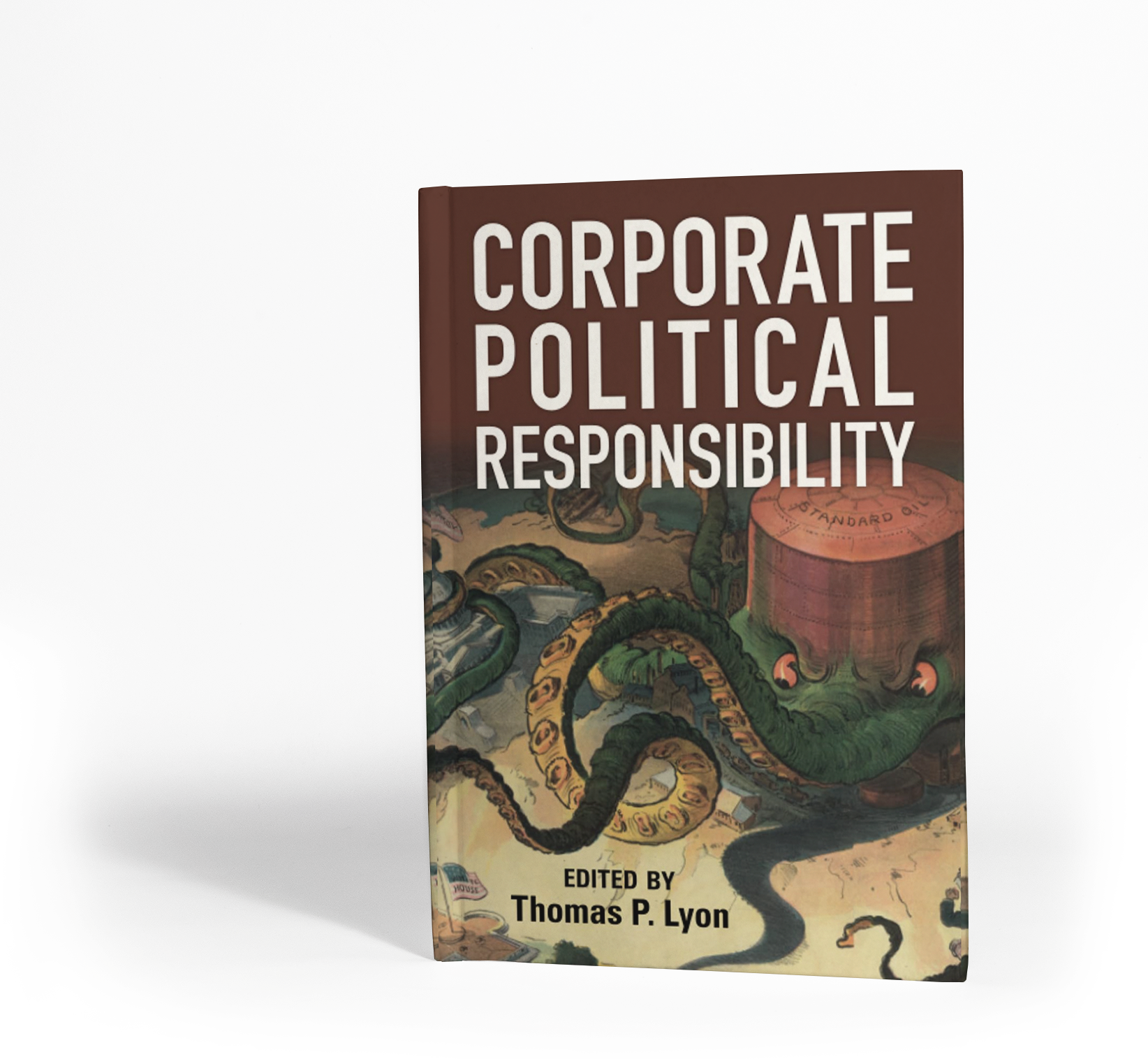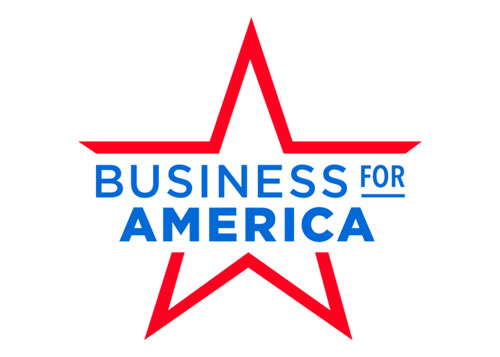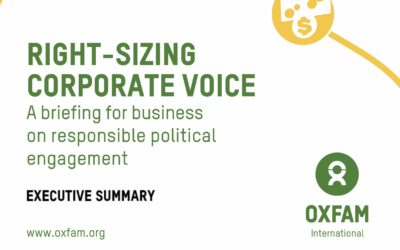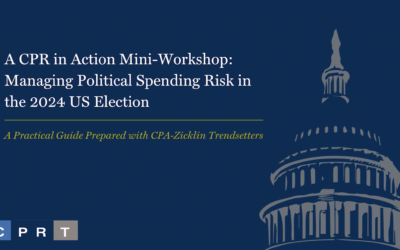Corporate Political Responsibility
A Non-partisan, Principled Approach
Our goal is to make it easier for companies to take a principled, responsible approach to their political influences, as a critical lever for:
-
-
- Reducing enterprise risk and enabling long-term strategy
- Making markets more sustainable
- Strengthening trust in civic institutions
- Establishing corporate political responsibility (CPR) as a shared norm
-
We support the Erb Institute’s mission of creating a sustainable world through the power of business by:
-
-
- Supporting executive champions as they operationalize CPR in their firms
- Co-creating non-partisan CPR principles and practical management tools
- Showcasing CPR research, thought leadership, solutions and case studies
- Engaging students and a diverse ecosystem of stakeholders to address CPR challenges
-
Featured Event
Join our next mini-workshop on CPR in action
Is Political Spending Disclosure Essential for Good Corporate Citizenship?
December 6th @ 1-2:15 PM ET
A CPR in Action Mini-Workshop led by student Research Assistants of the Erb Institute’s Corporate Political Responsibility Taskforce, along with Director Elizabeth Doty.
CPR Showcase
The latest CPR content and news from the Erb Institute, our partners, and outside outlets
Right-Sizing Corporate Voice: Oxfam Report Highlights Principles for Business Responsible Political Engagement
The Oxfam report, “Right-sizing Corporate Voice: A briefing for business on responsible policy engagement,” argues that political inequality is a major factor in economic inequality, and that the outsized role of corporations in political processes creates a...
Tools and Resources to Help Companies Manage Political Spending Risk
Amid social shifts, policy uncertainty, and growing partisan divides, companies face increasingly complex decisions related to stakeholder relationships and business strategy. This changing environment reinforces the importance of responsible governance around...
Why Companies Should Prioritize Climate Policy: Using the En-ROADS Simulator to Compare Levers for Reducing Emissions
This post is based on this recorded video demonstration - Amy Gobel of ARC: Using the EN-Roads Simulator to Explore Why Companies Should Prioritize Climate Policy Many companies recognize the risks associated with climate change and have committed to improving...
The Erb Principles for CPR: A Framework for CPR in Action
The Erb Principles for Corporate Political Responsibility provide a non-partisan, practical thought process to help companies respond to new questions and new pressures related to their political influences – from employees, investors, customers and the public.
JOIN THE CONVERSATION! Sign up to learn about CPR-related events, tools, readings, opportunities for input and positive action.

“In these polarized times, business has an incredibly important role to play in building public confidence in our constitutional democracy and its institutions. The key is not to take one side or the other, but the third side, the side of the whole country and its future. That is the aim of the CPRT and the Erb Principles.”
William Ury Co-founder, Harvard Program on Negotiation, and Co-author, Getting to YES
Learn More About Corporate Political Responsibility

Read the New Book
“Corporate Political Responsibility”
Erb Institute Faculty Director Tom Lyon’s recent book seeks to create a new norm for responsible political behavior by corporations.

Elizabeth Doty
CPR Taskforce Director
Meet Elizabeth

Tom Lyon
Dow Chair of of Sustainable Science, Technology and Commerce
Meet Tom
Professor Lyon is a leader in using economic analysis to understand corporate sustainability strategy and its interplay with public policy, NGOs, and consumer demands. His book Corporate Environmentalism and Public Policy was the first rigorous economic analysis of this important topic. His article “CSR Needs CPR: Corporate Sustainability and Politics” coined the term Corporate Political Responsibility. His latest book Corporate Political Responsibility seeks to create a new norm for responsible political behavior by corporations.
Read more from Tom: CSR Needs CPR: Corporate Sustainability and Politics; buy the book Corporate Political Responsibility

CHARLENE ZIETSMA
Erb Institute FACULTY Director
Meet Charlene
Professor Zietsma’s research focuses on social innovation: the individual, organizational, and collective efforts to make (and resist) significant, large-scale change in the context of sustainability and social justice issues. She studies institutional work, institutional change processes, social and sustainable entrepreneurship, and social movements focused on grand challenges and wicked problems. She is interested in how business organizations move toward more sustainable practices, particularly through voluntary governance such as certifications, codes of conduct, and cross-sector partnership agreements.

Melissa Zaksek
Erb Institute Interim Managing Director
Meet Melissa
Melissa Zaksek is Acting Managing Director of the Erb Institute at the University of Michigan. Building on nearly three decades of research, teaching, and business engagement, the Erb Institute is one of the world’s leading sources of knowledge and practice for business leadership in a rapidly changing world. The institute’s work includes graduate and undergraduate teaching; sustainability executive education; scholarly and applied research; and facilitation of industry roundtables, such as our groundbreaking Corporate Political Responsibility Taskforce and the CPR Principles.
Melissa works to advance the institute’s research agenda by building new partnerships with company and academic thought leaders and developing and implementing research initiatives that address business’s most pressing business sustainability challenges.
With a background in collaborative science, resource management and policy, and structured decision-making, Melissa is deeply committed to building and supporting collaborative efforts that promote environmental, social, and economic sustainability. Melissa has extensive experience engaging with diverse stakeholder groups, including scientists; federal, tribal, state, and municipal governments; conservation, stewardship, and industry organizations; and community groups.
Values-driven business networks interested in engaging their members to improve CPR








FAQs
What is Corporate Political Responsibility?
Corporate Political Responsibility refers to the idea that companies have an obligation to use
their political influence responsibly — which may mean choosing not to engage. Responsible
engagement means considering their obligations to stakeholders, long-term value creation, and
the systems on which we all depend.
In the U.S. today, companies are managing conflicting views about when and how they should
use their voices and their political influence — and facing new questions and new pressures
from employees, investors, lawmakers, and other stakeholders.
To respond effectively, it is increasingly important for corporate leaders to examine their
practices and articulate their rationale for engaging in the political landscape. Many leaders are
looking for a roadmap to help navigate challenges around:
- Responding to requests around engaging in political and social affairs
- Reducing brand risk and responding to employees and other stakeholders
- Addressing misalignment and weighing competing priorities
- Minimizing backlash or retribution
- Integrating policy needed to enable sustainable strategy
- Reducing geopolitical risk and instability
What will the Erb Principles for Corporate Political Responsibility help my company do?
While supportive frameworks have been built around many aspects of corporate social
responsibility, how the private sector can responsibly engage in political issues has been
largely left to individual companies to determine. To help companies manage these risks, the
Erb Institute’s Corporate Political Responsibility Taskforce (CPRT) set out to establish an
actionable, non-partisan framework to enable companies to:
- Determine whether and how to engage in civic and political affairs
- Frame meaningful conversations with stakeholders
- Articulate their reasoning in constructive ways
What are the Erb Principles for Corporate Political Responsibility?
Created in collaboration with business leaders, stakeholder groups, and experts from across the
political spectrum, the Erb Principles for Corporate Political Responsibility (CPR) help
companies explore critical questions including:
• Legitimacy. On what legitimate basis do we engage in civic and political affairs? When
should we get involved and why?
• Accountability. How do we align our political activities with our commitments to our
purpose, goals, and values?
• Responsibility. How do our political activities support the systems on which our economy,
society, and environment depend?
• Transparency. How do we communicate openly about political activities in a way that
promotes informed decision-making and public trust?
The full text of the Erb Principles for CPR can be downloaded here.
When is it responsible to get involved in political issues?
To be responsible, a firm’s political activities need to reflect a legitimate use of resources and
authority, and an authentic basis for engaging. At a minimum, that means complying with laws
and refraining from coercing stakeholders in political affairs. But what is an authentic basis for
engagement? Drawing on the fields of business and human rights, taskforce members and
stakeholders developed three conditions for authentic engagement on a given issue:
• Contribution. Whether the firm has caused or contributed to the issue or is involved through
its products, practices, or people.
• Commitments. Whether the issue affects the firm or its business, has a material impact on
key stakeholders, or relates to its purpose or commitments.
• Consequence. Whether the issue represents a threat to the foundational systems on which
the economy, society, or life depend — and the company has the capability to help.
If any of these conditions is met, then a company has a legitimate rationale for being involved
politically. Communicating this rationale is an essential indicator of respect, especially in an
environment of distrust.
Why should my business start with the Erb Principles for CPR?
Many global and U.S.-based frameworks touch on aspects of corporate political influence. We
think the Erb Principles for CPR are the best, in part because they offer a comprehensive, non-
partisan approach developed by and with business leaders and stakeholders. Consider starting
with the Erb Principles for CPR because they are:
• Comprehensive. The Erb Principles for CPR offer a holistic approach that helps companies be
consistent across the various channels of political influence, including their public
statements, internal communications, lobbying, political spending, and third-party
affiliations. In addition, they pull together other frameworks that emphasize Transparency
and Accountability (or alignment), while adding a focus on Responsibility and Legitimacy,
which are critical to many stakeholders today.
• Non-partisan but principled. The Erb Principles for CPR offer a thought process to help
companies decide whether and how to engage on political or civic issues, including staying
out of certain issues altogether, regardless of ideological background. This is meant to
provide a place to stand amid shifting political winds in a way that shows respect for varied
concerns.
• Adaptable. The Erb Principles for CPR help companies apply their unique commitments to
values, purpose, business strategy, and stakeholders while also outlining common
elements to establish Corporate Political Responsibility as a shared norm. Also, because
multinational companies operate in multiple countries, we have crafted relatively simple
and general principles that can be tailored for specific regions.
• Multi-sectoral. The Erb Principles were shaped by a group of business executives deeply
familiar with today’s political issues and business imperatives, in consultation with over 40
stakeholder advocacy groups, academic experts, and business network leaders from
diverse backgrounds.


